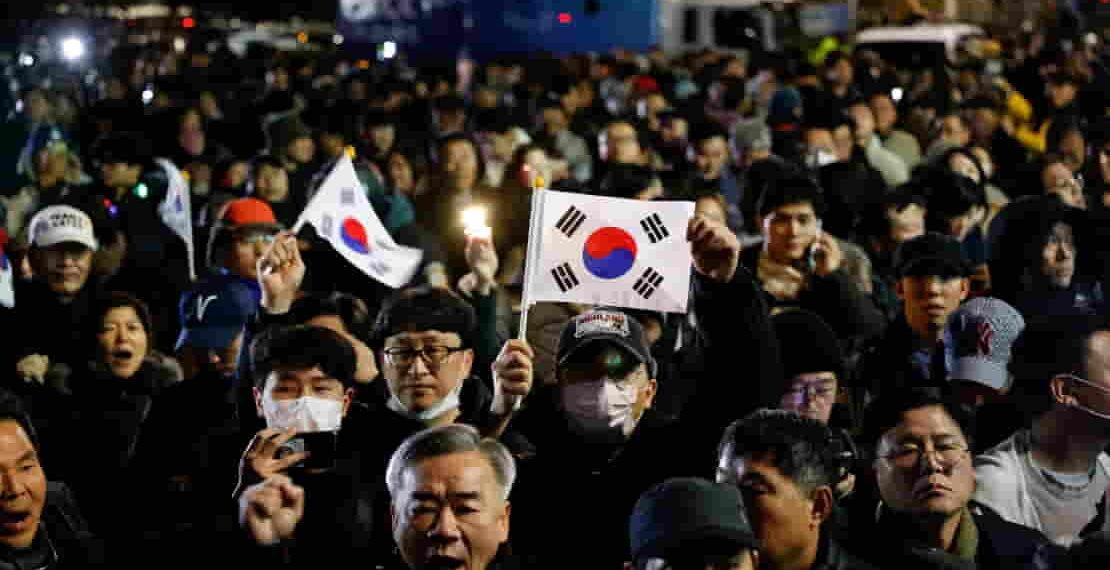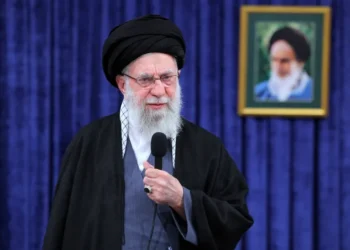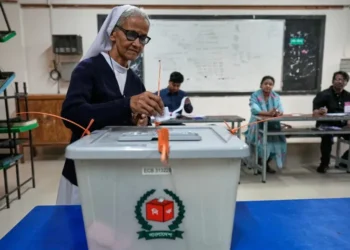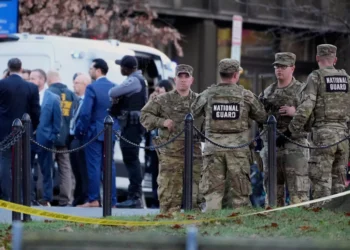North Korea, Russia, and China Observe Turmoil in US Ally South Korea
South Korea, a key democratic ally of the United States, experienced a dramatic political upheaval on Tuesday, sending shockwaves through the region and Washington at a time of heightened global tensions.
President Yoon Suk Yeol shocked the nation by declaring martial law, citing the need to combat “anti-state forces” and protect the “constitutional order of liberal democracy.” However, the controversial decree was swiftly reversed after widespread backlash across the political spectrum. Protesters in Seoul denounced the move as undemocratic, and calls for Yoon’s resignation surged.
This unexpected turn of events caught Washington off guard, raising concerns about stability in a nation where the United States maintains nearly 30,000 troops and its largest overseas military base. South Korea’s strategic importance lies not only in deterring North Korean aggression but also in counterbalancing China’s growing influence in the region.
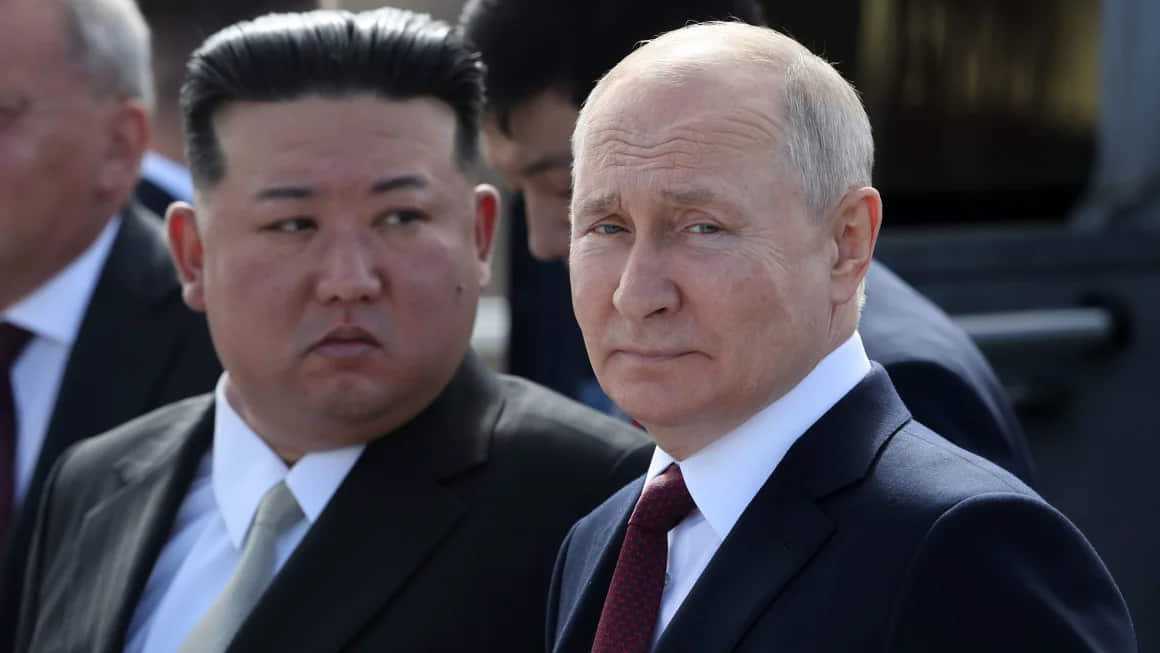
Regional Implications
The political turmoil in South Korea could have far-reaching consequences as geopolitical tensions intensify in Asia. North Korea and China, both strengthening ties with Russia amid its war in Ukraine, are likely monitoring the situation closely. For Pyongyang, the instability presents a potential opportunity to exploit its southern neighbor’s weakened political state.
The US-South Korea alliance has long been a cornerstone of regional security. Retired US Colonel Cedric Leighton emphasized the critical nature of this relationship, noting that American forces in South Korea are prepared for a “fight tonight” scenario against North Korea. Instability in Seoul, he warned, could undermine US strategic goals in the Indo-Pacific.
US Response and Concerns
President Joe Biden has prioritized strengthening ties with South Korea during his administration, hosting summits and bolstering trilateral coordination with Japan. However, Yoon’s actions have raised concerns about South Korea’s reliability as an ally.
A US National Security Council spokesperson expressed relief at Yoon’s reversal of martial law, reaffirming that “democracy is at the foundation” of the US-South Korea partnership. Despite assurances that the alliance remains “ironclad,” observers fear the incident could erode trust between South Korea, the US, and Japan.
Rachel Minyoung Lee, a senior fellow at the Stimson Center, highlighted the potential damage to South Korea’s standing. “Yoon’s actions may lead to doubts about South Korea’s reliability as a partner,” she said, particularly as the US and South Korea have deepened their cooperation on nuclear deterrence in recent years.
The timing of the crisis is especially sensitive, with President-elect Donald Trump set to return to the White House. Trump has previously questioned the financial arrangement for hosting US troops in South Korea, adding another layer of uncertainty to the alliance.
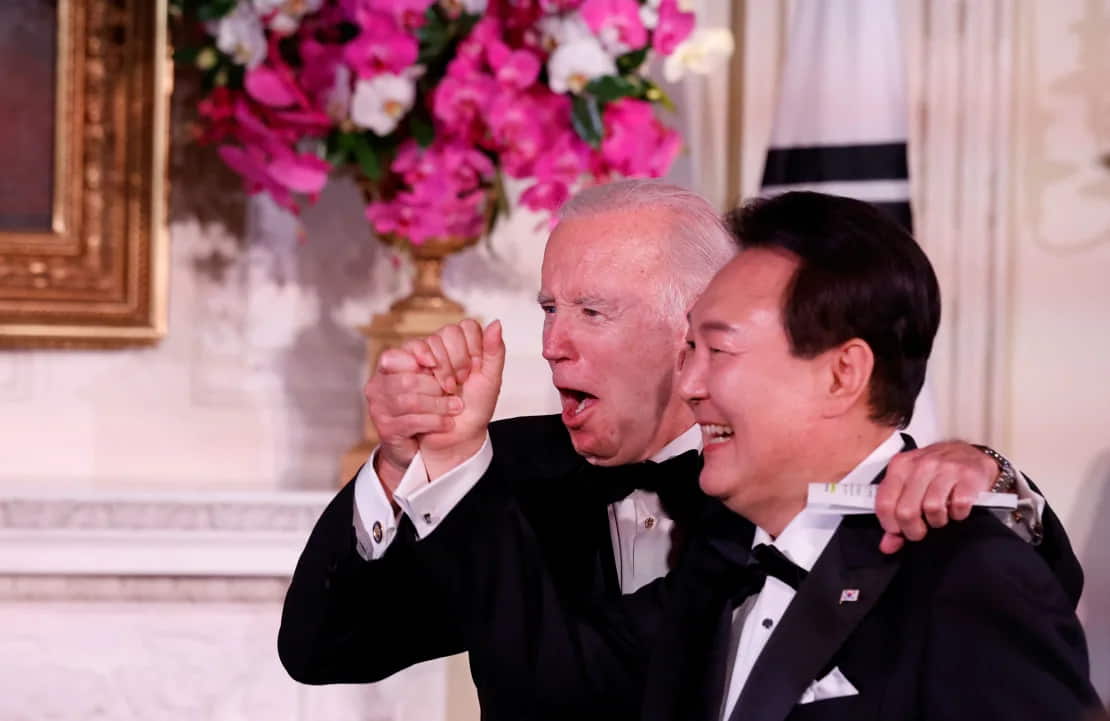
North Korea’s Opportunism
The political unrest in Seoul provides North Korean leader Kim Jong Un with an opportunity to advance his agenda. Historically, Pyongyang has capitalized on such moments, using them to launch weapons tests or escalate rhetoric against South Korea.
Edward Howell, a lecturer at the University of Oxford specializing in the Korean Peninsula, warned that Pyongyang could exploit the chaos, both rhetorically and through provocative actions. “North Korea often mocks South Korea’s democracy during periods of turmoil,” Howell said, adding that a domestic crisis in Seoul could embolden Pyongyang.
Watching from Beijing and Moscow
China and Russia are also likely closely observing the unfolding crisis. Both nations oppose the US military presence in Asia and have expressed dissatisfaction with Washington’s strengthened alliances in the region. Chinese President Xi Jinping, in particular, has been critical of South Korea’s growing alignment with US policies.
Yoon’s government has taken a firm stance on North Korea and supported Ukraine amid Russia’s invasion, though it has refrained from supplying lethal arms. Some analysts warn that South Korea’s internal divisions could weaken its ability to support global allies and address pressing international challenges.
Conclusion
The unfolding political crisis in South Korea comes at a precarious time for the region and the world. With North Korea’s involvement in the Ukraine war, escalating tensions with China, and the need for a unified front among US allies, stability in Seoul is critical.
As Edward Howell observed, “South Korea’s domestic unity is essential to maintaining its strategic partnerships, particularly as its role in the Ukraine conflict gains significance.” Whatever the outcome, the current turmoil underscores the high stakes for South Korea and its allies in navigating an increasingly volatile global landscape.
This article was rewritten by JournosNews.com based on verified reporting from trusted sources. The content has been independently reviewed, fact-checked, and edited for accuracy, neutrality, tone, and global readability in accordance with Google News and AdSense standards.
All opinions, quotes, or statements from contributors, experts, or sourced organizations do not necessarily reflect the views of JournosNews.com. JournosNews.com maintains full editorial independence from any external funders, sponsors, or organizations.
Stay informed with JournosNews.com — your trusted source for verified global reporting and in-depth analysis. Follow us on Google News, BlueSky, and X for real-time updates.
